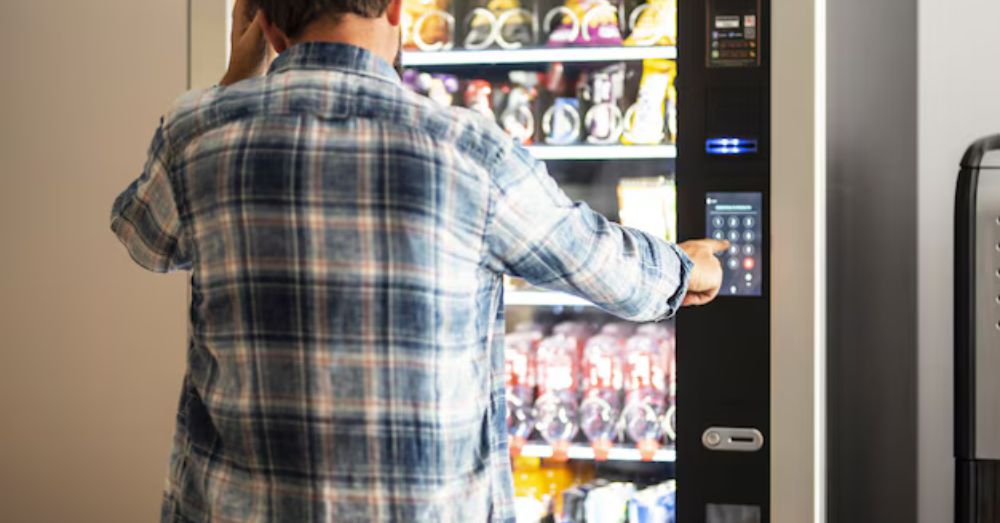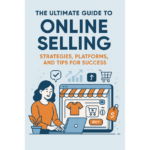Introduction
Buying a Used Vending Machine are a familiar sight in many public spaces, offering easy access to snacks, beverages, and various products. For those looking to start a vending machine business or expand an existing one, buying a vending machine is a crucial decision. While new vending machines come with the latest technology and warranties, used machines present a more budget-friendly option. This guide will walk you through the advantages and challenges of Buying a Used Vending Machine, as well as provide detailed steps for making an informed purchase.
The Vending Machine Market
Market Overview
The vending machine industry has evolved from basic models dispensing snacks and drinks to advanced machines featuring cashless payment options and touchscreen interfaces. This evolution reflects the growing demand for convenience and innovation in consumer services. With the global Buying a Used Vending Machine market valued at around $18 billion in 2020 and projected to grow at a rate of 9.4% annually from 2021 to 2028, the industry offers ample opportunities for new and existing businesses.
Types of Vending Machines
Understanding the various types of Buying a Used Vending Machine available can help you choose the right one for your needs:
- Snack Machines: Dispense a range of snacks like chips, candy, and granola bars.
- Beverage Machines: Offer drinks such as sodas, water, and juices, with some models also providing hot beverages.
- Combo Machines: Provide both snacks and drinks in one unit.
- Specialty Machines: Sell non-traditional items like electronics, beauty products, or fresh meals.
- Frozen Food Machines: Equipped with refrigeration to sell items like ice cream or frozen meals.
Choosing the right type depends on your target market and the products you plan to offer.
Advantages of Buying a Used Vending Machine
Cost Savings
One of the main benefits of purchasing a used vending machine is the cost savings. New machines can be quite expensive, often costing thousands of dollars, while used machines are typically available at a lower price. This cost efficiency allows you to invest more in other aspects of your business, such as inventory or marketing.
Quick Return on Investment
A lower initial investment in a used vending machine means you can start generating revenue more quickly. The reduced upfront cost allows for a faster return on investment, letting you reinvest your profits into growing your business or improving operations.
Quality and Longevity
Many used vending machines are built to be durable and reliable. Even though they are pre-owned, they can still perform well if they have been well-maintained. By buying a used machine, you may be able to access high-quality equipment that might otherwise be out of reach if purchased new.
Environmental Benefits
Choosing a used vending machine also has environmental advantages. By opting for a second-hand machine, you reduce the demand for new production, which helps lower the carbon footprint associated with manufacturing and shipping. This environmentally friendly choice can appeal to consumers and businesses concerned about sustainability.
Potential Drawbacks of Buying a Used Vending Machine
Hidden Issues and Repairs
A significant risk of buying a used vending machine is the potential for hidden problems. These issues might include malfunctioning parts, outdated technology, or general wear and tear. While a used machine may be cheaper, the cost of repairs and maintenance could offset the initial savings.
Limited Warranty and Support
Used vending machines often lack the warranties and customer support that come with new models. This means you will be responsible for any repairs or issues that arise. Additionally, finding replacement parts for older machines can be difficult, especially if the manufacturer has discontinued them.
Outdated Technology
The Buying a Used Vending Machine industry has seen significant technological advancements, such as cashless payment systems and remote monitoring. Used machines might not have these modern features, which could impact customer satisfaction and sales.
Aesthetic Wear and Tear
Used machines may show signs of wear, such as scratches or dents, which can affect their appearance. While these cosmetic issues don’t impact functionality, they can influence your brand image and may give customers the impression of an outdated or poorly maintained business.
Steps to Buying a Used Vending Machine
1. Determine Your Needs and Budget
Before you begin your search for Buying a Used Vending Machine, clarify your needs and set a budget. Consider the following:
- Product Type: What will you be vending? This determines the type of machine you need.
- Location: Where will the machine be placed? Consider the available space and the type of customers.
- Budget: Decide how much you’re willing to spend on the machine and any potential repairs.
Having a clear understanding of your needs and budget will help you find the right machine.
2. Research and Source Machines
Start researching and sourcing used vending machines. Here are some options:
- Online Marketplaces: Websites like eBay and Craigslist offer a variety of used machines. Check seller reviews and machine descriptions carefully.
- Local Dealers: Some dealers offer refurbished machines. Buying locally can reduce shipping costs and allow for in-person inspection.
- Auctions: Vending machine auctions can be a good source for deals, but they require quick decisions and thorough inspection.
- Networking: Connect with other vending operators or business owners who might be selling their machines.
Gather detailed information about each machine, including its history, condition, and any previous issues.
3. Inspect the Machine
Before purchasing, thoroughly inspect the Buying a Used Vending Machine. Here’s what to check:
- Physical Condition: Look for visible damage like dents or rust. Ensure the door and locks are functional.
- Internal Components: Check the coin mechanism, bill validator, and product dispensers for wear and damage.
- Electrical Systems: Test the machine’s lighting, refrigeration (if applicable), and displays.
- Software and Technology: If the machine has digital features, make sure they work properly.
Whenever possible, ask the seller to demonstrate the machine in operation.
4. Negotiate and Purchase
After identifying a suitable machine, negotiate the price. Used vending machines are often sold at a discount, but the final price should reflect the machine’s condition and any necessary repairs. Be prepared to negotiate and consider walking away if the price doesn’t fit your budget.
Once you agree on a price, get a receipt or bill of sale that includes the machine’s serial number, model, and terms of sale. This documentation is important for your records and any future transactions.
5. Transport and Install the Machine
Transporting a vending machine requires careful planning due to its size and weight. You may need professional movers or specialized equipment like a dolly or lift gate truck. After delivery, ensure proper installation, including leveling the machine and connecting it to a power source.
Maintenance and Operation of Your Used Vending Machine
Routine Cleaning and Maintenance
Regular cleaning is essential for keeping your Buying a Used Vending Machine in good condition. Clean the exterior, including the glass and buttons, as well as the interior components like product trays and coin mechanisms. This helps maintain the machine’s appearance and prevents operational issues.
Inventory Management
Effective inventory management is key to maximizing sales. Track which products are popular and adjust your stock accordingly. Ensure products are neatly stocked and within their expiration dates. Regularly check stock levels and restock as needed to keep up with customer demand.
Handling Repairs and Issues
Even with regular maintenance, your Buying a Used Vending Machine may face technical issues. Familiarize yourself with the machine’s manual and perform basic troubleshooting for minor problems. For more complex issues, consider consulting a professional technician or contacting the manufacturer if possible.
Conclusion
Buying a Used Vending Machine can be a smart and cost-effective decision for starting or expanding a vending business. By understanding the advantages and potential drawbacks, conducting thorough research, and carefully inspecting machines, you can make an informed choice that aligns with your business goals. With proper maintenance and management, a used vending machine can provide reliable service and contribute to the success of your venture.
















